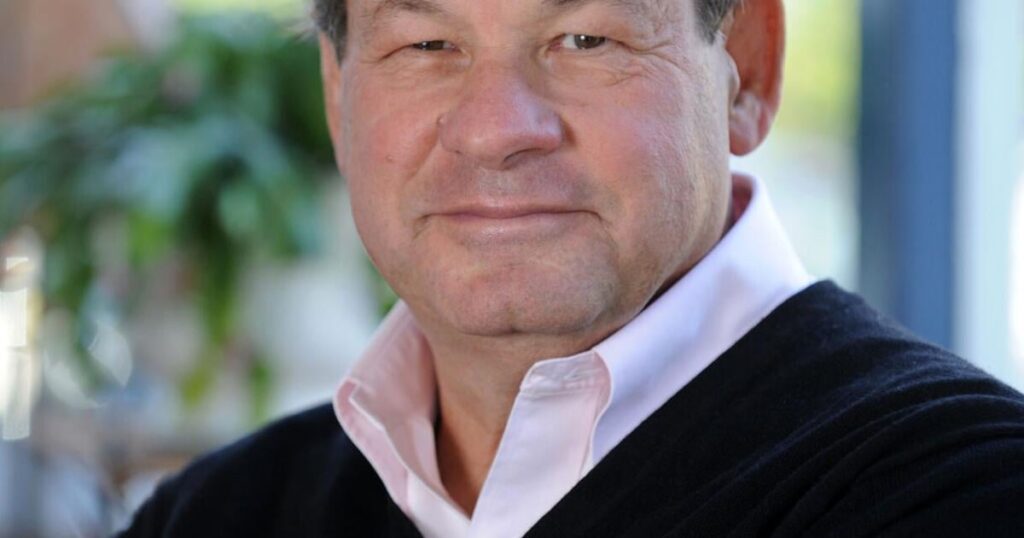Joe Biden and Donald Trump have agreed to two debates, one in June on CNN and one in September on ABC, and each thinks he can win, or at least have an advantage over the other. But they can't both be right.
Political scientists agree that debates rarely have a decisive impact on elections, and this year there are even fewer swing votes than usual. Poll analyst Nate Silver told Politico: “These days, the candidates are so well-known and everyone is so partisan, there's really nothing to influence the polls, so the debates just don't matter that much.”
But there's a flip side: This election, like the past two, is likely to be very close, so even small shifts in public opinion can have a big impact. Debates often draw huge viewership numbers — 73 million people tuned in to watch Biden and Trump's first showdown — but that's not all: Debates generate content that can be shaped and shared right up until Election Day.
So debates matter. At least, they might. Alan Schroeder, who wrote a book on the subject, told CNN, “The great thing about debates is that they're the only opportunity in a long, two-year campaign where you get to see the candidates go head-to-head. … I think that's a really important part of the election, because they're so different from everything else.”
Like TV ads, debates rarely change people's minds or preferences. What they can change, says Schroeder, is motivation and willingness to act on one's choice. “You may have already decided that you support one candidate over another, but does that mean you'll actually turn out to vote? If you watch a debate and are moved by a great performance from the other candidate or are intimidated by what they say, there's a good chance that the debate will change your vote.”
The question is how the candidates will galvanize their supporters. Of course, issues matter. Trump will emphasize inflation and immigration. Biden will emphasize abortion rights, infrastructure spending and climate change.
But voters are often more interested in personal traits like character, temperament and judgment, and a debate is a rare moment in a campaign when candidates must speak live under maximum stress, without teleprompters, advisors or even bathroom breaks.
Frank Fahrenkopf Jr. is chairman of the Commission on Presidential Debates, and though his committee was sidelined this year by the candidates, he has presided over 33 debates. Fahrenkopf told Politico's Ryan Lizza, “What we've found is that the American people really want to like their president, so I think they're making their decision based on how they conduct themselves, not just on the answers that are given.”
His comments highlight why both candidates agreed to debate this year: They believe they would win any personality comparison.
For Trump, the decision was easy: As The New York Times reports, “Almost everyone in the Trump camp believes Biden has significantly weakened since 2020, and that a debate with Trump would show that.” Aaron Blake adds in The Washington Post: “The debate certainly risks confirming people's concerns about Biden's age, if he can't hold his own against an opponent who loves to interrupt and provoke. But it was a test that Biden, in particular, had to take on and pass.”
Biden will certainly have to pass a test of energy and patience, but there is another reason why the president risked the debate. Inflation remains a persistent thorn in many Americans' minds, and if the election becomes a referendum on Biden's term in office, he is likely to lose. Biden must reframe the question voters ask themselves. Biden wants and needs to get voters to ask not “Am I happy with the economy?” but “Would it be worse under Trump?”
“The Biden campaign is trying to remind voters why a majority removed Trump from office in 2020,” the Times wrote. “People close to the president say they worry about so-called Trump amnesia — that voters are nostalgic for Trump and have forgotten how divisive he was — and some recent polling bears that out. In the Biden campaign's view, a head-to-head debate with a potentially huge audience would be the most dramatic way to expose Trump to greater public opinion.”
So each side is making the same bet: that the other will flinch. That the debate will expose the other's flaws. Trump wants Biden to look old and weak. Biden wants Trump to look crazy and unstable.
One candidate may be making a bad bet, but we won't know which one until the debate is over.

